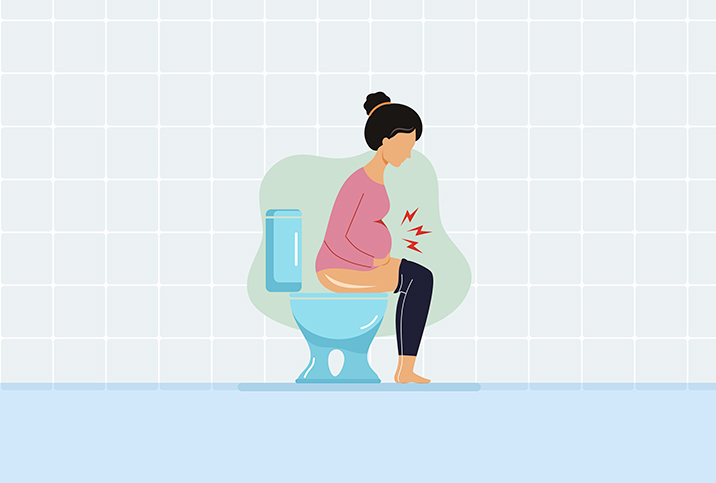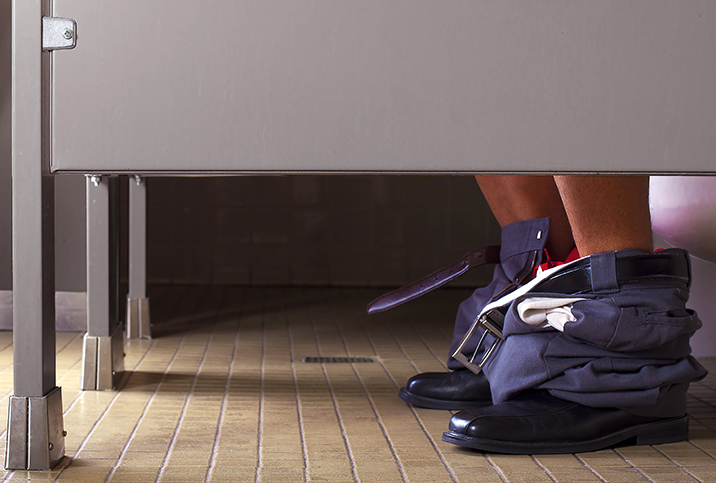A New Vibrating Pill Treats Chronic Constipation

Vibrant, a newly available pill that treats chronic constipation, looks like medication—but it's not. The capsule, about the size and shape of a fish oil supplement, is actually an electronic vibrating device that's completely drug-free.
Instead of a pharmaceutical, the capsule relies on vibrations to stimulate the large intestine, said Eamonn Martin Quigley, M.D., a Houston-based gastroenterologist who helped develop the capsule.
The capsule was cleared by the U.S. Food and Drug Administration (FDA) in August 2022. According to a press release from the manufacturer, Vibrant Gastro, it became available for doctors to prescribe in early February this year.
About chronic constipation
Chronic constipation affects up to an estimated 20 percent of Americans. The condition is defined as infrequent bowel movements or the difficult passage of stools for six months or longer, according to Satish Rao, M.D., Ph.D., a professor of medicine at Augusta University in Georgia who led the clinical trials for Vibrant.
There are two main types of constipation, according to Rao. Primary constipation—known as "functional" or "idiopathic constipation"—occurs when constipation is the primary issue, as opposed to a symptom of an underlying condition.
Secondary constipation is attributed to a condition outside of the gut, such as diabetes, hypothyroidism or pregnancy, he explained.
Chronic constipation is most often associated with young women, with urinary and sexual dysfunction reported as comorbidities. When constipated, your colon and rectum are full of stool, and the vagina and rectum occupy a similar space in the female body, located in an intricate web of nerves and muscles in the pelvic floor. Aside from causing cramping and bloating, chronic constipation can be uncomfortable and may cause pain during intercourse.
According to Rao, Vibrant is primarily intended for people with primary constipation, specifically, people experiencing slow-transit constipation where the colon is "lazy" and not moving stool or irritable bowel syndrome (IBS) with constipation, where there is some irritability in the colon.
How the vibrating capsule works
Vibrant uses a similar technology to that of the PillCam, an ingestible camera in a capsule developed to examine the gastrointestinal tract, Quigley said.
"When the pill is activated, it's programmed to begin vibrating around seven or eight hours after you take it," he added. "The reason for that is that you want it to switch on in the colon, not in the stomach or the small intestine."
Once in the large intestine, the pill works to treat chronic primary constipation in two ways.
"The pill mechanically and gently agitates the colon wall to excite the colonial muscles and the nerves," Rao explained. "The local excitement of colonic muscles and nerves activates the colon, moving the stool and, ultimately, causing evacuation."
In addition, he noted that the vibrating pill also appears to activate connectivity between the gut and the brain.
"We are able to pick up signals in the brain as long as the vibration is going on, suggesting that it is also working on the gut-brain circulatory," Rao said.
This matters because "in a number of constipated patients, the circulatory has become dysfunctional," he added.
Side effects
Patients who take the capsule experience minimal side effects because it's drug-free.
"Traditional treatments for constipation are laxatives or drugs that increase the secretion and motility in the gut," Rao explained. "Most of them have side effects: cramps, discomfort, profuse diarrhea, bloating."
By contrast, very few patients who took Vibrant during the clinical trial experienced side effects.
"The capsule was extremely well-tolerated," he said. "One to 2 percent of people experienced a little bloating. About 11 percent of patients reported a vibrating sensation."
The vibrating sensation ranged from mild to strong but generally didn't bother patients significantly, Rao noted, adding that none of them felt the vibrating was uncomfortable or stopped taking the pill because of it.
Who should consider taking Vibrant?
Quigley cautioned that some people should not take Vibrant.
"If you have any difficulty swallowing or emptying your stomach [gastroparesis], or if you have diseases like Crohn's disease or diverticulitis, where you can get narrowing in the intestine, you should not take the vibrating capsule," Quigley said.
People should consider Vibrant if they haven't had any success with the first line of treatment, such as increasing fiber in their diet and taking over-the-counter laxatives, he added.
The vibrating capsule is not intended to be a cure for chronic constipation. Rather, it was developed to be taken daily as a maintenance tool.
Vibrant is available for about $89 per month, which is costlier than most over-the-counter options, but the manufacturer is trying to make the treatment more affordable.
"We are working right now with insurance companies to obtain coverage in commercial plans," Cathy Collis, chief commercial officer for Vibrant Gastro, said in a press release. "But until we get that coverage, our goal and commitment is to make sure that this is accessible and affordable to patients."


















